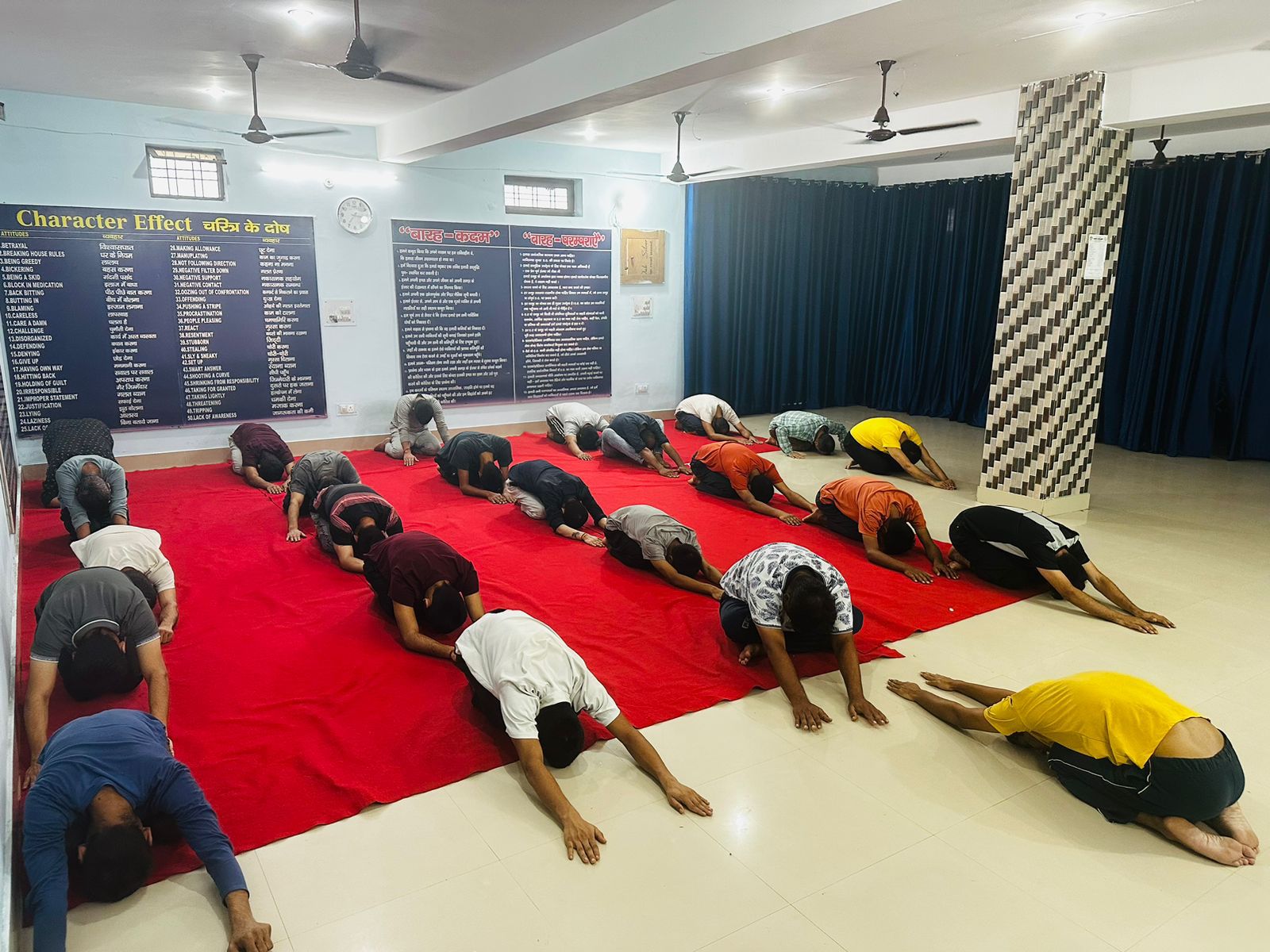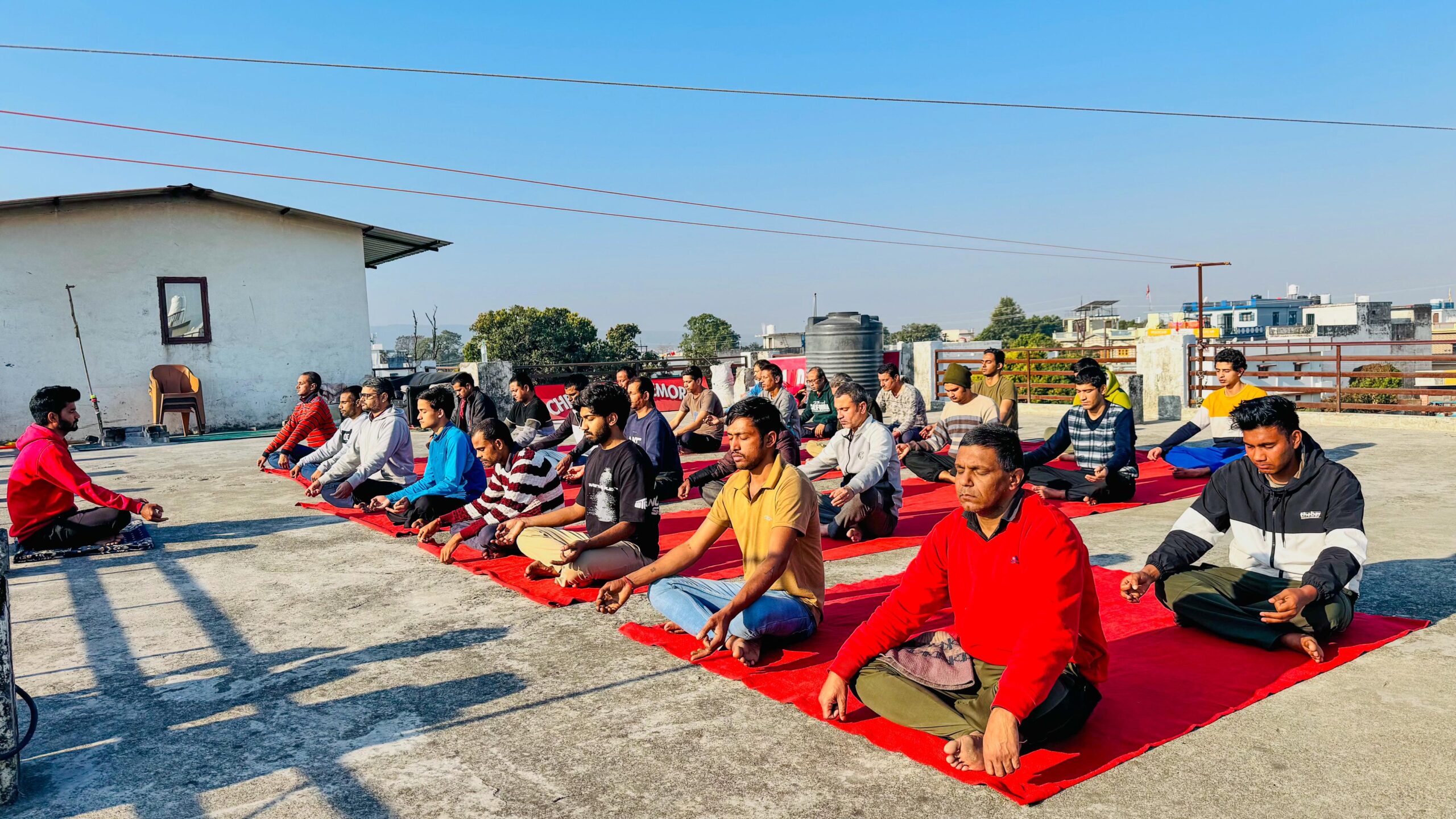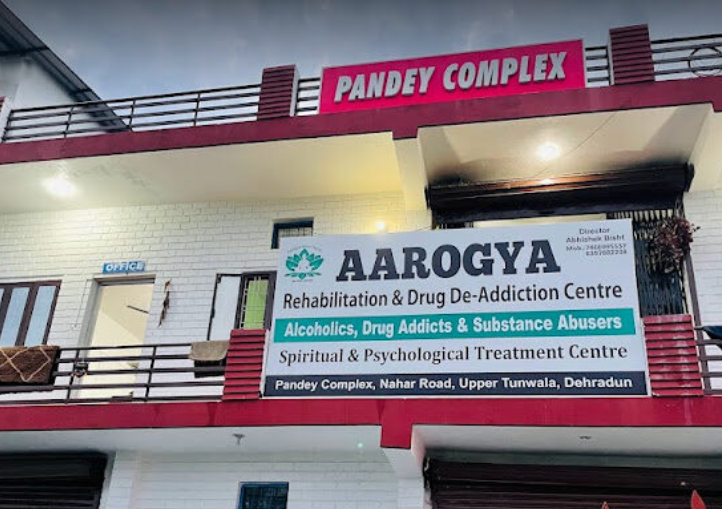Alcohol use is common in India, often starting with occasional drinking and gradually leading to addiction. When long-term drinkers stop or reduce alcohol, the body experiences alcohol withdrawal symptoms, which can be dangerous if unmanaged. Aarogya Sewa Samiti provides support and professional care to safely manage alcohol withdrawal symptoms and treatment is provided as soon as possible.
This article explains the stages of alcohol withdrawal, common symptoms, and safe treatment options
Why Alcohol Withdrawal Happens
Alcohol changes the way the brain and body work. When a person drinks regularly, their body becomes dependent on alcohol to function normally. The brain reduces its natural calming chemicals because alcohol provides the relaxation. When alcohol is suddenly stopped, the body struggles to adjust, and this leads to alcohol withdrawal symptoms.
In India, many people are not aware of the risks of sudden alcohol withdrawal. Families often believe that forcing someone to stop drinking immediately is the best way. But without proper care and alcohol withdrawal symptoms and treatment in India, it can lead to severe health problems.

Stages of Alcohol Withdrawal
Alcohol withdrawal happens in stages, and each stage brings different symptoms. Understanding these stages helps families and patients know what to expect.
1. Mild Withdrawal (6–12 hours after last drink)
This is the first stage, which begins within a few hours of the last drink. Symptoms are usually mild but uncomfortable. Common signs include:
-
Anxiety and nervousness
-
Nausea and vomiting
-
Sweating and trembling hands
-
Headache
-
Difficulty sleeping
At this stage, many people think they can handle it on their own. But without guidance, mild withdrawal can progress to more dangerous stages. That is why medical experts stress the importance of early attention to alcohol withdrawal symptoms and treatment in India.
2. Moderate Withdrawal (12–24 hours after last drink)
As the body continues to react, symptoms become stronger. People may experience:
-
Increased blood pressure and heart rate
-
Fever and sweating
-
Mood swings and irritability
-
Confusion and difficulty concentrating
Moderate withdrawal can be stressful not just for the person but also for family members. In India, families often try home remedies, but these are not enough. At this stage, professional care for alcohol withdrawal symptoms and treatment in India is needed to prevent complications.
3. Severe Withdrawal (24–72 hours after last drink)
This is the most dangerous stage, also called Delirium Tremens (DTs). Symptoms include:
-
Hallucinations (seeing or hearing things that are not real)
-
Severe confusion
-
Seizures
-
High blood pressure and irregular heartbeat
Without immediate treatment, severe alcohol withdrawal can be life-threatening. Hospitals and rehabilitation centers are prepared to provide safe medical care. That is why families must never ignore the seriousness of alcohol withdrawal symptoms and treatment in India.
4. Post-Acute Withdrawal Syndrome (PAWS)
Even after the initial symptoms are managed, some people continue to feel after-effects for weeks or months. This is known as PAWS. Symptoms may include:
-
Depression and mood swings
-
Cravings for alcohol
-
Fatigue and low energy
-
Trouble focusing
These symptoms show that recovery is not just about stopping alcohol but also about long-term healing. This highlights the need for proper alcohol withdrawal symptoms and treatment in India, which covers both short-term and long-term care.
Dangers of Ignoring Alcohol Withdrawal
Some families think that stopping alcohol at home is safe. But ignoring medical care can lead to:
-
Severe dehydration
-
Seizures and accidents
-
Brain damage
-
In some cases, even death
That is why experts strongly recommend not handling alcohol withdrawal alone. Safe recovery is only possible with professional alcohol withdrawal symptoms and treatment in India.
How to Handle Alcohol Withdrawal Safely
Handling alcohol withdrawal is not just about willpower. It requires medical care, emotional support, and long-term planning.
1. Medical Detox
The first step is detox, which should be done in a safe environment like a hospital or rehabilitation center. Doctors may give medicines to reduce anxiety, seizures, and cravings. This makes withdrawal safer and less painful. Medical detox is one of the most important parts of alcohol withdrawal symptoms and treatment in India.
2. Counseling and Emotional Support
After detox, the person needs counseling. Addiction is not only physical; it also affects the mind. Therapists help patients understand their triggers, manage stress, and build healthier habits. Families in India are encouraged to take part in counseling sessions so they can support their loved ones better.
3. Healthy Lifestyle Changes
The body and brain need time to recover. A balanced diet, exercise, and good sleep can speed up healing. Yoga and meditation, which are widely practiced in India, also help reduce stress and cravings. These lifestyle steps are often included in alcohol withdrawal symptoms and treatment in India programs.
4. Support Groups
Talking to others who are going through the same struggle is very powerful. Support groups like Alcoholics Anonymous (AA) are available in many Indian cities. They provide guidance, encouragement, and friendship during recovery.
5. Long-Term Rehabilitation
Recovery does not end after detox. Long-term rehabilitation is important to prevent relapse. Many centers in India provide structured programs that include therapy, group sessions, and skill-building activities. This ensures that alcohol withdrawal symptoms and treatment in India are managed effectively in the long run.
Role of Family in Safe Recovery
Family support is one of the strongest tools in recovery. In India, family bonds are very strong, and this can be an advantage. Families can:
-
Encourage medical help instead of forcing sudden withdrawal
-
Provide emotional support and patience
-
Join family therapy sessions
-
Help create a positive environment at home
When families work together with professionals, alcohol withdrawal symptoms and treatment in India become easier to manage and more successful.
Why Professional Help Matters
Trying to quit alcohol without medical support is like walking on a risky path without guidance. Professional care ensures:
-
Safety during withdrawal
-
Proper medicines to reduce risks
-
Emotional support for both patient and family
-
A plan for long-term recovery
This is why experts highlight that only professional alcohol withdrawal symptoms and treatment in India can make the recovery journey safe and effective.
Conclusion
Alcohol withdrawal is a serious process that should never be ignored or handled alone. Understanding the stages—from mild to severe—and getting timely medical support can save lives. In India, where many families still believe in managing withdrawal at home, spreading awareness about alcohol withdrawal symptoms and treatment in India is very important.
If you or your loved one is struggling, remember that professional help is always available. Aarogya Sewa Samiti is dedicated to guiding families toward safe recovery and long-term healing. For trusted care, you can reach out to the best nasha Mukti Kendra in Dehradun, where expert support is provided with compassion and commitment.

